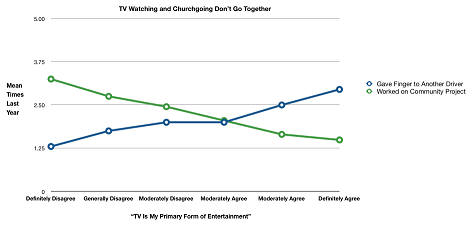The headline says it all. On my blog, June is Online Community Month. It is so decreed. And mind you, by community, I don’t mean a particular type of web site, such as the myriad online “communities” described by forums, chat rooms and other real community metaphors. I mean real communities — that raise kids and pay taxes and send loved ones off to war — that are strengthened and propagated by online activity (maybe). In a phrase, I’m talking about computer mediated Community, with a capital C.
Friends vs. “Friends”
This may seem like splitting hairs, this online Communities versus communities business. But it is huge. It is as different a distinction as a friend is to a “friend” — one forged on Facebook (or some other social network) with the click of a mouse and the exchange of some level of web access.
My decision to devote a series of blog entries to the topic started in the Fall of last year. Ever the optimist, I had assumed that technology was the friend of community — as scary as it sometimes appears to parents of the young and keepers of the status quo. I was planning to research the topic to succinctly lay out of the facts to this view. Then I did some digging, and a lot of reading and discussing, and now I’m not so sure. Sometimes Chicken Little is right, and the sky really is falling.
I will be looking, in this U.S. election year, at political involvement online. And also the involvement of grassroots organizations. And even professional associations. I’ll be getting the help of experts where I can, and readers who are willing to provide their two cents.
Bowling Alone
I’ll also be helped by an extraordinary book that predates Web 2.0, but still has great value, from the perspective of recent history. It will also be used to fairly distribute blame, where blame is due, to technology other than modern, web-enabled networking. I’m talking about the book Bowling Alone, by Robert D. Putnam. The title comes from the phenomenon of an era that seems distant now, when we as a society bowled in leagues together, usually after work. The disintegration of this community-building ritual, along with others great and small, is exhaustively examined.
I’ll be sharing observations and statistics from the book throughout the month, as I look at this question: Has technology eroded our social fabric, or simply provided a new way to weave it?
I’ll start today with this factoid from the book — one that examines the communication technology that scared our parents the way the web does this generation’s. I’m talking about the technology that Newton Minow is 1961 called the “vast wasteland.” His famous speech used that term to describe the specific social decay that comes from a day of television:
When television is bad, nothing is worse. I invite you to sit down in front of your television set when your station goes on the air and stay there for a day without a book, magazine, newspaper, profit-and-loss sheet or rating book to distract you — and keep your eyes glued to that set until the station signs off. I can assure you that you will observe a vast wasteland.
The One-fingered Salute
Bowling Alone talks about the technology of television a lot, asking if there is evidence that a society glued behind a set is more prone to ignoring the niceties that keep a community civil. Below is one interesting finding that the author used to show that it does.
It compares two self-reported activities: Participating in altruistic community events and flipping the bird to passing motorists. Here is his chart, showing the reverse correlation between contributing to what he calls “social capital” and contributing to road rage. It shows a similar direct correlation between this anti-social activity and highly valuing television. Click for a larger view, fully-legible view. (Ignore the reference to “churchgoing” in the titleby the way. It refers to additional data not shown here. It was included to help those who wish to find the entire dataset in the book’s index.)
Optimists would say that these trend lines may be coincidental. Every generation has complained about the gradual coarsening of its citizens. Web-savvy optimists, such as myself, would also argue that television can degrade “connectedness” while more modern technology aids it. Keep reading this month for more perspectives on this question, to see if I am one such optimist.
